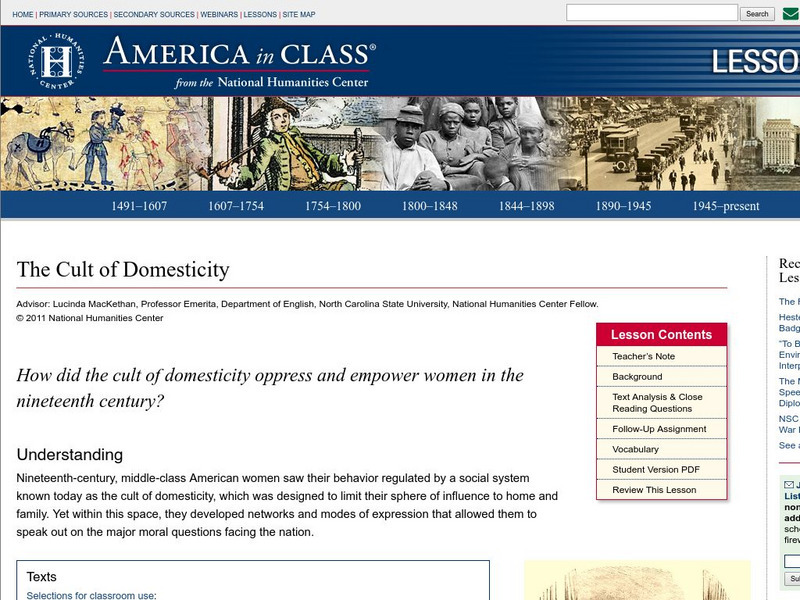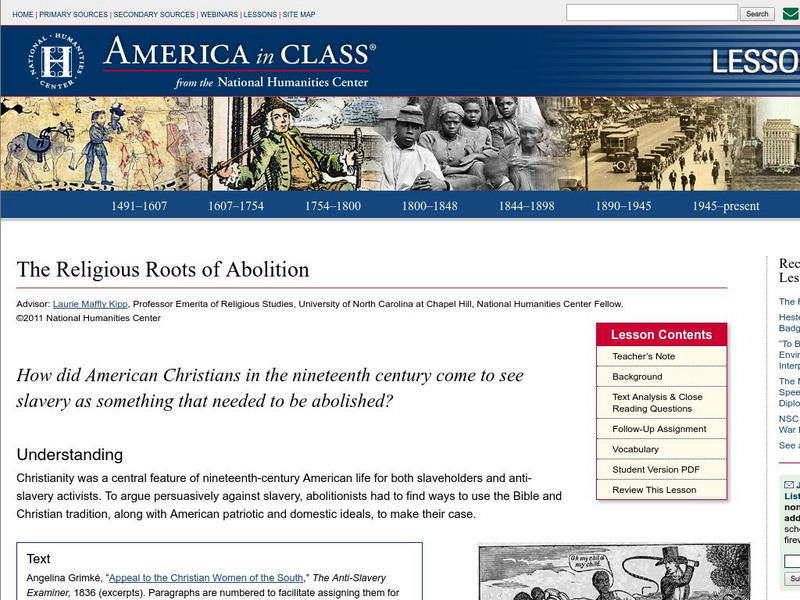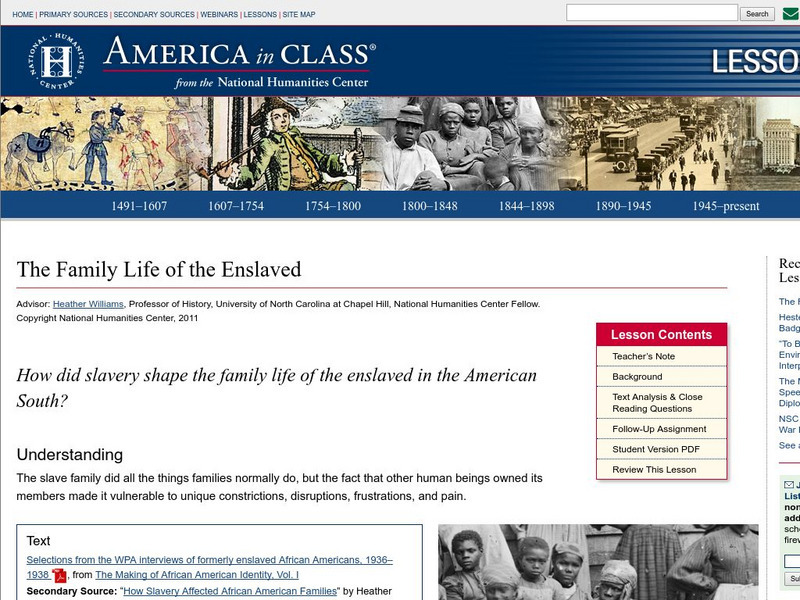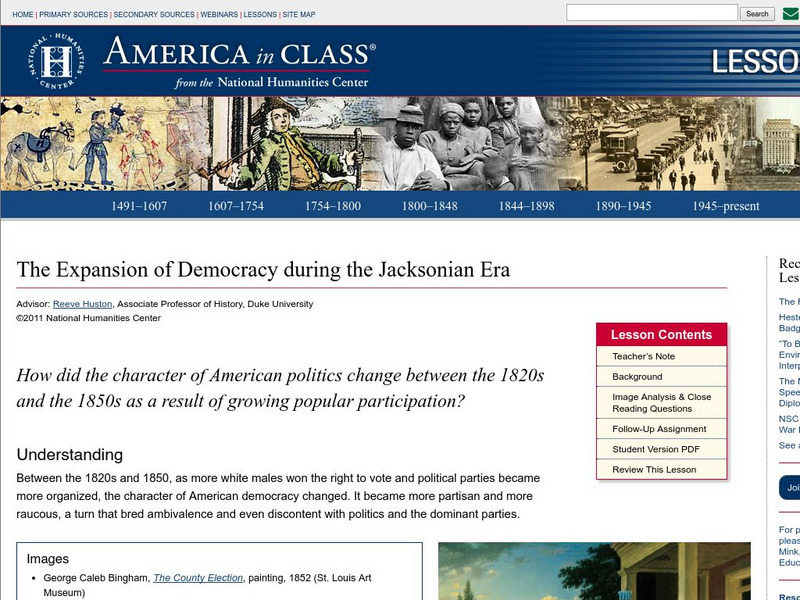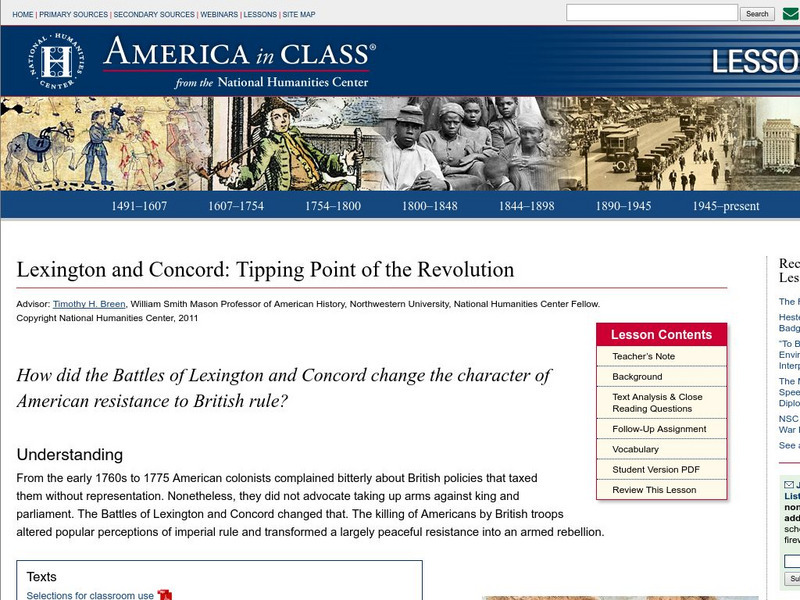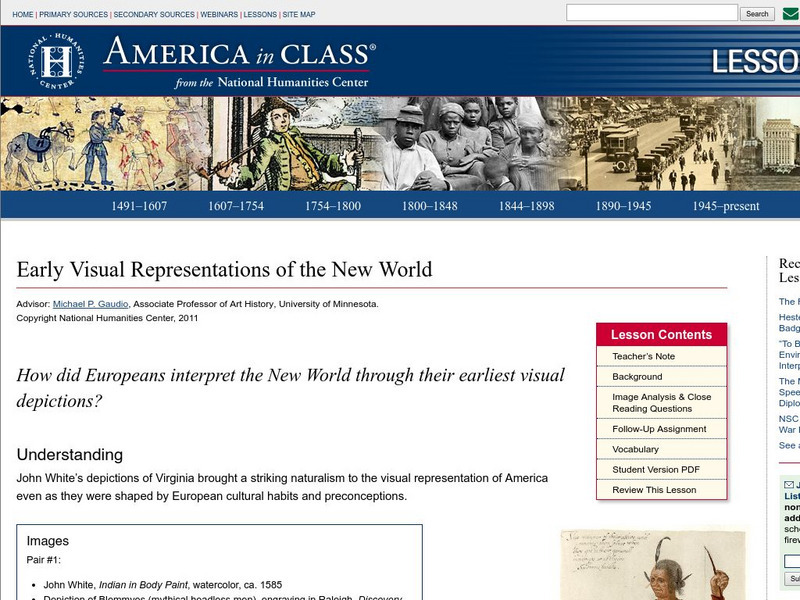National Humanities Center
National Humanities Center: Toolbox Library: u.s. Supreme Court Plessy v. Ferguson [Pdf]
Read this concise discussion of the landmark Supreme Court decision, Plessy v Ferguson. Find a synopsis of the case, the majority opinion of the court, and the dissenting opinion by Justice Harlan.
National Humanities Center
National Humanities Center: Toolbox Library: The European Presence in North America 1492 1690
Primary source material on European presence in North America between 1492 and 1690 covers the topics of contact, exploration, settlement, permanence, and power. Includes notes and discussion questions.
National Humanities Center
National Humanities Center: America in Class: The Cult of Domesticity
A lesson plan that looks at the place of women in nineteenth century America. While their role that was constrained by societal expectations, they still wielded political power in subtle ways.
National Humanities Center
National Humanities Center: America in Class: The Religious Roots of Abolition
A lesson that looks at the role of Christianity in the fight to abolish slavery in the United States.
National Humanities Center
National Humanities Center: America in Class: A Pro Slavery Argument, 1857
A lesson that explores the argumments made by pro-slavery proponents in the United States prior to abolition.
National Humanities Center
National Humanities Center: America in Class: Slavery and the Family Life of the Enslaved
A lesson that looks at how slavery impacted on the slaves' family lives in the United States.
National Humanities Center
National Humanities Center: America in Class: Expansion of Democracy During the Jacksonian Era
Lesson where students explore the emergence of the American system of democracy and political parties between 1820 and 1850. Using paintings by George Caleb Bingham and Richard Caton Woodville, and a political cartoon depicting the...
National Humanities Center
National Humanities Center: America in Class: The Expansion of Democracy During the Jacksonian Era
Lesson on how the character of American politics changed between the 1820s and 1850s as a result of growing popular participation. Complete set of resources including primary source material, teacher notes, vocabulary, and strategies for...
National Humanities Center
National Humanities Center: America in Class: Lexington and Concord: Tipping Point of Revolution
Lesson where young scholars examine primary texts from 1775 and 1776 to explore the impact of the Battles of Lexington and Concord on people's attitudes towards the British. Up to that point, protests against the British had not been...
National Humanities Center
National Humanities Center: America in Class: American Revolution as Civil War
A lesson where students examine the journal of a young Scottish woman, Janet Schaw, visiting North Carolina in 1775. She writes of her experiences observing the tensions and rivalries in the Cape Fear River area that pitted neighbors...
National Humanities Center
National Humanities Center: America in Class: Successful European Colonies in the New World
Lesson using primary source material on European attempts to establish colonies in the New World and why some were successful but most failed.
National Humanities Center
National Humanities Center: America in Class: Failed European Colonies in the New World
Lesson that examines some of the reasons European efforts to establish colonies in the New World were often met with failure. It focuses on the story of nine Jesuit priests who started a small colony on Chesapeake Bay in the hopes of...
National Humanities Center
National Humanities Center: America in Class: Early Visual Representations of the New World
A lesson that examines how Native Americans were portrayed by artists in the sixteenth century, whose aim was to convey their appearance to a European audience, and thereby encourage investment in future New World explorations. By...


![National Humanities Center: Toolbox Library: u.s. Supreme Court Plessy v. Ferguson [Pdf] Primary National Humanities Center: Toolbox Library: u.s. Supreme Court Plessy v. Ferguson [Pdf] Primary](https://static.lp.lexp.cloud/images/attachment_defaults/resource/large/FPO-knovation.png)

